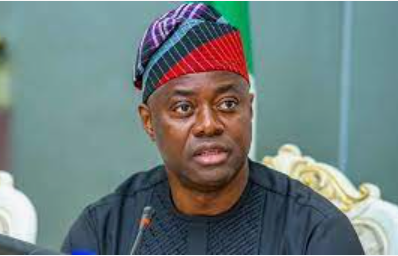
Makinde maintained that the judgment had created a constitutional lacuna that would throw up different challenges at the local government level, saying that though he was not opposed to transparency in the councils, the Supreme Court judgment “is not a silver bullet that will wash away” Nigeria’s problems.
The governor stated this on Monday during an Advisory/Consultative Committee Meeting comprising stakeholders in the local government system.
He noted that he convened a meeting of all relevant stakeholders in the local government system so that they could outline the major challenges at the councils and develop solutions that would ensure a seamless implementation of the process in a way that would ensure that the people of the state do not suffer.
This was contained in a release issued by the Special Adviser (Media) to the state governor, Sulaimon Olanrewaju, on Tuesday.
According to the governor, his administration knows and has been doing what is right, including conducting two council elections to ensure caretaker committees don’t man the affairs of councils, clearing of backlog of debts owed workers and pensioners at the council level and fixing infrastructure deficit in the Primary Health Care sectors and the inner roads.
The meeting, held at the Executive Chamber of the Governor’s Office, Secretariat, Agodi, Ibadan, had in attendance council chairmen, the leaderships of the National Union of Local Government Employees (NULGE), Nigerian Union of Teachers (NUT), Nigerian Union of Pensioners (NUP), Nigeria Labour Congress (NLC) and Trade Union Congress (TUC), as well as representatives of Ministries, Departments and Agencies that have connection with the local government system.
At the end of the meeting, the governor set up two committees saddled with the responsibilities of reviewing the Supreme Court judgment on local government autonomy and coming up with recommendations that would ensure that the change did not affect the people of the state negatively.
The statement reads, “I called this meeting because I felt that even though we have not seen the Certified True Copy of the judgment of the Supreme Court, we have to be proactive and discuss the decision of the Supreme Court as it concerns financial autonomy of the local government councils because I believe a lacuna has been created between the decision and the constitution of the Federal Republic of Nigeria that we all swore to uphold.
“The law is the law, and when there is a conflict, yes, we should go to the court. But it behoves us to look for our own homegrown solutions that can ensure that we have transparency and that our people do not suffer. This is because when two elephants are fighting, it is the grass that will suffer.”
Makinde noted that his administration inherited a local government system that owed a backlog of salaries, gratuities, and pensions.
He added, “I am saying this because Oyo State will get out of this even stronger. We are people who know what is good for our people. Before we came in, leave bonuses were last paid in 2017, and we have paid for 2018, 2019, 2020, 2021, 2022, and 2023. The Primary Health Care facilities and inner roads were all in bad shape. But we have been working collaboratively with the LGs to deliver dividends of democracy to our people.
“We were able to clear those salary arrears. We paid N18bn in pension and gratuities over this period. We upgraded about 209 PHCs, equipped about 264, and completed 60 model schools. We constructed and renovated hundreds of primary school classrooms and fixed some of our roads.
“But there are still challenges that we have to address. We still have a backlog of gratuities and pensions. The local governments owe about N55 billion in pension and gratuities. We are developing infrastructure that would push the economy and raise the living standard of their people, and push their economy towards sustainable goals.”
Briefing newsmen shortly after the closed-door meeting, the state Commissioner for Local Government and Chieftaincy Matters, Ademola Ojo, stated that the two committees set up by the governor had been given a time frame of four to six weeks to come up with the homegrown approach to addressing the lacuna created by the Supreme Court judgment.
Also speaking, the state Attorney-General/Commissioner for Justice, Biodun Aikomo, said the governor took a proactive step by setting up the committees, as, according to him, the step would help address the crisis that might arise as a result of the judgment.
Aikomo added that the governor had shown that he is committed to the welfare of the Oyo State people and the development of the state.
The meeting had in attendance the Deputy Governor, Bayo Lawal; Speaker, Oyo State House of Assembly, Adebo Ogundoyin; Chairman, House Committee on Local Government and Chieftaincy Matters, Olajide Akintunde and other government functionaries.





